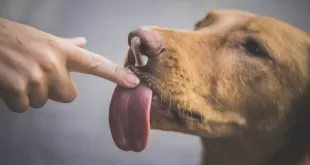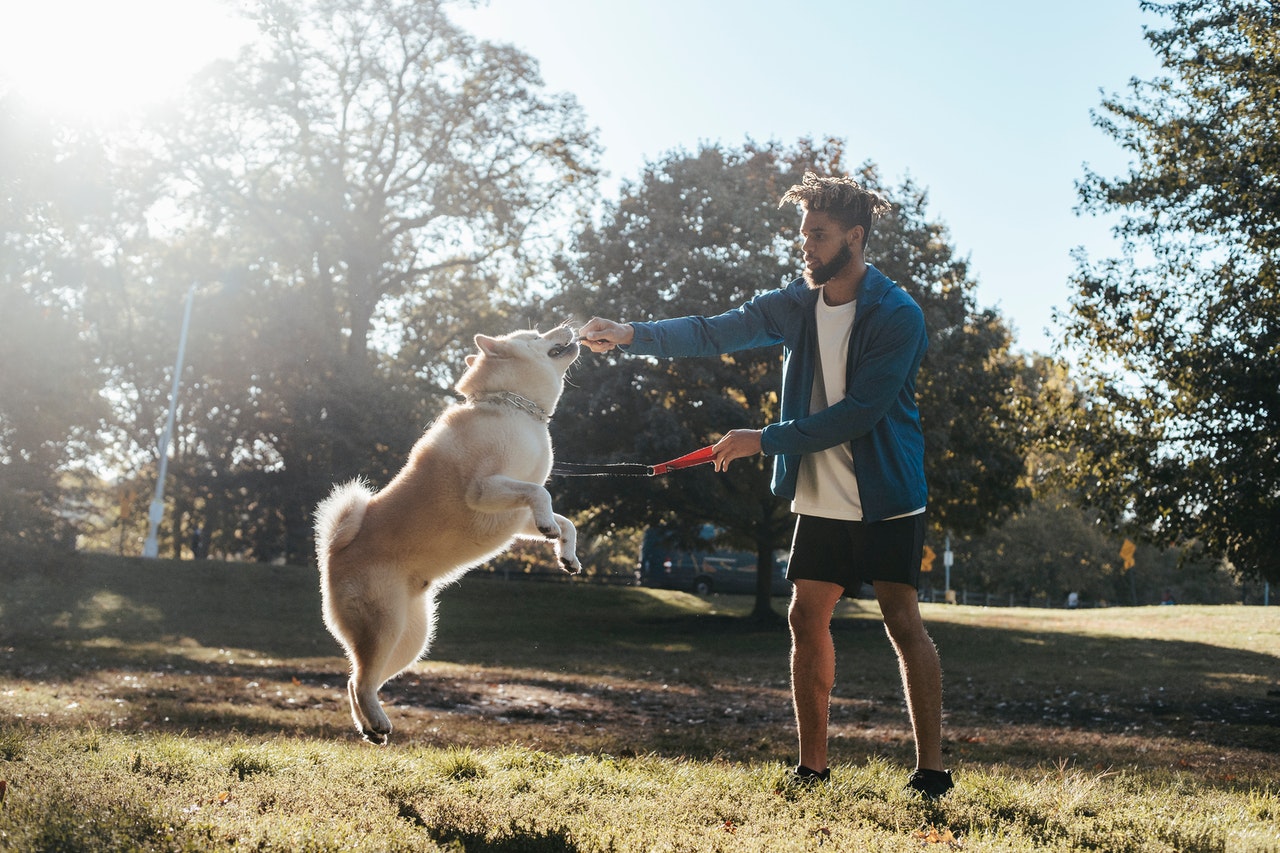Last Updated on February 18, 2023
In recent days, my dog keeps pacing and won’t lay down. This is frustrating, at times, especially when I am about to fall asleep. Imagine the dog trotting in and out of the room, making those tattering noises on the floor! If you are having a concrete floor, then maybe the noise is not significant. But if you have a parquet flooring, then you will know my pain.
Reasons Why Dog Keeps Pacing Around
 Actually, I think I know why my dog loves to pace around, especially when I am sleeping. You see, the dog will usually sleep beside me on her bed. And whenever I snore, the dog must have been scared stiff by the sudden noise, and she decides to walk away. She only returns when the snoring stops.
Actually, I think I know why my dog loves to pace around, especially when I am sleeping. You see, the dog will usually sleep beside me on her bed. And whenever I snore, the dog must have been scared stiff by the sudden noise, and she decides to walk away. She only returns when the snoring stops.
Not quite.
There are actually many legitimate reasons at which why the dog keeps pacing and won’t lay down. Let us examine some of the common reasons.
Health Issues
Of course, this is the most common assumption. Somewhat true, if the dog is suffering from some health issues, then the dog might pace around, probably wanting to get some of your attention. Some of the potential health issues might be:
If you noticed, the first four reasons are more towards internal problems that might not be easily detected by the layman. But nonetheless, these are real dangers that you should keep a lookout for.
While other sites might describe to you some of the conditions, we suggest you bring your dog to the vet immediately should you think that the dog is suffering from any of the above problems.
Psychological Issues
If your dog is pacing around a lot, then there might be psychological issues that are bothering your dog. Some of it may include being in a foreign environment, having a sudden loss of companionship or even the replacement of their favorite toys.
Sometimes, sudden noises can even cause these issues in timid dogs.
To solve this, all you got to do is to ensure that you have a comfortable bedding for your dog as well as having a dog crate to go along with it. Dog crates are excellent as they serve to provide the dog with a safe haven to rest in.
Boredom
Dogs are social animals that need regular physical and mental stimulation to stay healthy and happy. If your dog is left alone for long periods of time, or if they don’t have access to regular exercise or playtime, they may become bored and restless. Pacing can be a sign that your dog is trying to find a way to entertain themselves or release excess energy.
To combat boredom, it’s important to make sure that your dog is getting plenty of exercise and mental stimulation. Regular walks, games of fetch, and training sessions can all help keep your dog engaged and active. Puzzle toys and chew toys can also be a great way to keep your dog occupied when you’re not home, as they can provide mental stimulation and keep your dog from becoming bored.
Age-related changes
As dogs age, they may experience changes in their sleep patterns and cognitive function, which can lead to restlessness and pacing. Older dogs may have trouble settling down at night, or may wake up frequently due to discomfort or changes in their bladder control. They may also experience cognitive dysfunction, which can affect their ability to process information and may cause confusion or anxiety.
To help your aging dog find comfort and rest, it’s important to provide them with a comfortable, supportive bed and make sure they have easy access to water and food. You may also need to make adjustments to their daily routine, such as taking them for shorter, more frequent walks, and providing additional support when they need to climb stairs or get in and out of vehicles. If your dog is experiencing cognitive dysfunction, your vet may be able to provide medication or other treatments to help manage their symptoms.
How to Help Your Dog Stop Pacing
If your dog is pacing and won’t lay down, there are several things you can try to help them find the rest they need:
- Create a Comfortable Environment
Make sure your dog has a comfortable place to rest, with a soft bed or blanket, and access to water. If your dog is anxious, consider providing a quiet, enclosed space where they can feel safe and secure.
- Provide Physical and Mental Stimulation
To help combat boredom, make sure your dog is getting plenty of physical exercise and mental stimulation. Take them for walks, play games with them, and offer puzzle toys or chew toys to keep them occupied.
- Reduce Anxiety
If your dog is experiencing anxiety, there are several things you can do to help them feel more calm and relaxed. Try using calming pheromone sprays or diffusers, or consider using an anxiety wrap or vest to provide gentle pressure that can help your dog feel more secure.
- Consider Medication
If your dog’s pacing is caused by a medical issue, your vet may recommend medication to help manage their symptoms. Anti-anxiety medications, pain medications, and other drugs may be recommended depending on the underlying cause of your dog’s restlessness.
- Seek Professional Help
If your dog’s pacing continues, or if you’re concerned that there may be an underlying medical or behavioral issue, it’s important to seek professional help. Your vet can perform a thorough exam to rule out medical issues, while a certified dog trainer or animal behaviorist can provide guidance on addressing any behavioral issues that may be contributing to your dog’s restlessness.
Conclusion
Pacing is a common behavior in dogs, but if your dog keeps pacing and won’t lay down, it’s important to take action to help them find the rest they need. By addressing potential causes such as anxiety, boredom, or medical issues, and providing your dog with a comfortable, stimulating environment, you can help them find the peace that they need!
 Dog N Treats All dogs deserve to be pampered
Dog N Treats All dogs deserve to be pampered



